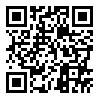مجله رویش روانشناسی از دادن گواهیهای کاغذی معذور است. لطفا تقاضا نکنید. همه گواهی ها در صفحه شخصی کاربران موجود است.
year 12, Issue 1 (Spring 2023 2023)
Rooyesh 2023, 12(1): 155-166 |
Back to browse issues page
Download citation:
BibTeX | RIS | EndNote | Medlars | ProCite | Reference Manager | RefWorks
Send citation to:



BibTeX | RIS | EndNote | Medlars | ProCite | Reference Manager | RefWorks
Send citation to:
Farhadi Navarud S, Tahmorsi N, Sedaghat M. (2023). Comparison of the effectiveness of mindfulness therapy and cognitive-behavioral therapy on negative spontaneous thoughts. Rooyesh. 12(1), 155-166.
URL: http://frooyesh.ir/article-1-3690-en.html
URL: http://frooyesh.ir/article-1-3690-en.html
1- Department of Health Psychology, Kish International Branch, Islamic Azad University, Kish Island, Iran.
2- Assistant professor and member of the faculty of Psychology Department, South Tehran Branch, Islamic Azad University, Tehran, Iran. ,Niloufar.tahmouresi@kiau.ac.ir
3- Assistant Professor Department of Psychology, Semnan Branch, Islamic Azad University, Semnan, Iran.
2- Assistant professor and member of the faculty of Psychology Department, South Tehran Branch, Islamic Azad University, Tehran, Iran. ,
3- Assistant Professor Department of Psychology, Semnan Branch, Islamic Azad University, Semnan, Iran.
Abstract: (1690 Views)
The aim of this study was to compare the effectiveness of mindfulness-based therapy and cognitive-behavioral therapy on negative future thoughts in entrance exam candidates with physical symptoms. This research was a quasi-experimental study of pre-test, and post-test design with the control group. The statistical population of the study consisted of all female entrance examination candidates under the supervision and follow-up of educational counselors of Talesh City counseling centers in the period of 2020-2021, from which 45 people were selected using purposive sampling. This number was among the three intervention groups based on mindfulness, cognitive-behavioral, and control groups that were randomly replaced. Data were collected using the Negative Future Thoughts Questionnaire (ATQ, Holon et al., 1980). Mindfulness-based intervention was held in 8 2-hour sessions and cognitive-behavioral intervention was conducted in 9 2-hour sessions once a week. Data were analyzed using a one-way analysis of covariance. The results showed that mindfulness-based therapy is effective in reducing negative spontaneous thoughts (p <0.05); Cognitive-behavioral therapy was also reported to be effective in reducing negative spontaneous thoughts (p <0.05). The results showed that mindfulness-based therapy intervention was significantly different from the cognitive-behavioral group in terms of effectiveness on negative future thoughts (p <0.05). It can be concluded that mindfulness-based therapy is more effective in reducing negative future thoughts in entrance exam candidates with more physical symptoms.
Keywords: Negative spontaneous thoughts, entrance exam candidates, cognitive-behavioral therapy, mindfulness-based therapy.
Type of Article: Research |
Subject:
Clinical Psychology
Received: 2022/04/11 | Accepted: 2022/05/23 | ePublished: 2023/03/30
Received: 2022/04/11 | Accepted: 2022/05/23 | ePublished: 2023/03/30
Send email to the article author
| Rights and permissions | |
 |
This work is licensed under a Creative Commons Attribution-NonCommercial 4.0 International License. |






